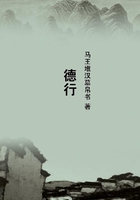Finally, in times when the class struggle nears the decisive hour, the process of dissolution going on within the ruling class, in fact within the whole range of society, assumes such a violent, glaring character, that a small section of the ruling class cuts itself adrift, and joins the revolutionary class, the class that holds the future in its hands. Just as, therefore, at an earlier period, a section of the nobility went over to the bourgeoisie, so now a portion of the bourgeoisie goes over to the proletariat, and in particular, a portion of the bourgeois ideologists, who have raised themselves to the level of comprehending theoretically the historical movement as a whole.
Of all the classes that stand face to face with the bourgeoisie today, the proletariat alone is a really revolutionary class.
The other classes decay and finally disappear in the face of Modern Industry; the proletariat is its special and essential product. The lower middle class, the small manufacturer, the shopkeeper, the artisan, the peasant, all these fight against the bourgeoisie, to save from extinction their existence as fractions of the middle class. They are therefore not revolutionary, but conservative. Nay more, they are reactionary, for they try to roll back the wheel of history. If by chance they are revolutionary, they are so only in view of their impending transfer into the proletariat, they thus defend not their present, but their future interests, they desert their own standpoint to place themselves at that of the proletariat.
The "dangerous class," the social scum, that passively rotting mass thrown off by the lowest layers of old society, may, here and there, be swept into the movement by a proletarian revolution; its conditions of life, however, prepare it far more for the part of a bribed tool of reactionary intrigue.
In the conditions of the proletariat, those of old society at large are already virtually swamped. The proletarian is without property; his relation to his wife and children has no longer anything in common with the bourgeois family-relations; modern industrial labour, modern subjection to capital, the same in England as in France, in America as in Germany, has stripped him of every trace of national character. Law, morality, religion, are to him so many bourgeois prejudices, behind which lurk in ambush just as many bourgeois interests.
All the preceding classes that got the upper hand, sought to fortify their already acquired status by subjecting society at large to their conditions of appropriation. The proletarians cannot become masters of the productive forces of society, except by abolishing their own previous mode of appropriation, and thereby also every other previous mode of appropriation. They have nothing of their own to secure and to fortify; their mission is to destroy all previous securities for, and insurances of, individual property.
All previous historical movements were movements of minorities, or in the interests of minorities. The proletarian movement is the self-conscious, independent movement of the immense majority, in the interests of the immense majority. The proletariat, the lowest stratum of our present society, cannot stir, cannot raise itself up, without the whole superincumbent strata of official society being sprung into the air.
Though not in substance, yet in form, the struggle of the proletariat with the bourgeoisie is at first a national struggle.
The proletariat of each country must, of course, first of all settle matters with its own bourgeoisie.
In depicting the most general phases of the development of the proletariat, we traced the more or less veiled civil war, raging within existing society, up to the point where that war breaks out into open revolution, and where the violent overthrow of the bourgeoisie lays the foundation for the sway of the proletariat.
Hitherto, every form of society has been based, as we have already seen, on the antagonism of oppressing and oppressed classes. But in order to oppress a class, certain conditions must be assured to it under which it can, at least, continue its slavish existence. The serf, in the period of serfdom, raised himself to membership in the commune, just as the petty bourgeois, under the yoke of feudal absolutism, managed to develop into a bourgeois. The modern laborer, on the contrary, instead of rising with the progress of industry, sinks deeper and deeper below the conditions of existence of his own class. He becomes a pauper, and pauperism develops more rapidly than population and wealth. And here it becomes evident, that the bourgeoisie is unfit any longer to be the ruling class in society, and to impose its conditions of existence upon society as an over-riding law. It is unfit to rule because it is incompetent to assure an existence to its slave within his slavery, because it cannot help letting him sink into such a state, that it has to feed him, instead of being fed by him.
Society can no longer live under this bourgeoisie, in other words, its existence is no longer compatible with society.
The essential condition for the existence, and for the sway of the bourgeois class, is the formation and augmentation of capital; the condition for capital is wage-labour. Wage-labour rests exclusively on competition between the laborers. The advance of industry, whose involuntary promoter is the bourgeoisie, replaces the isolation of the labourers, due to competition, by their revolutionary combination, due to association. The development of Modern Industry, therefore, cuts from under its feet the very foundation on which the bourgeoisie produces and appropriates products. What the bourgeoisie, therefore, produces, above all, is its own grave-diggers. Its fall and the victory of the proletariat are equally inevitable.















